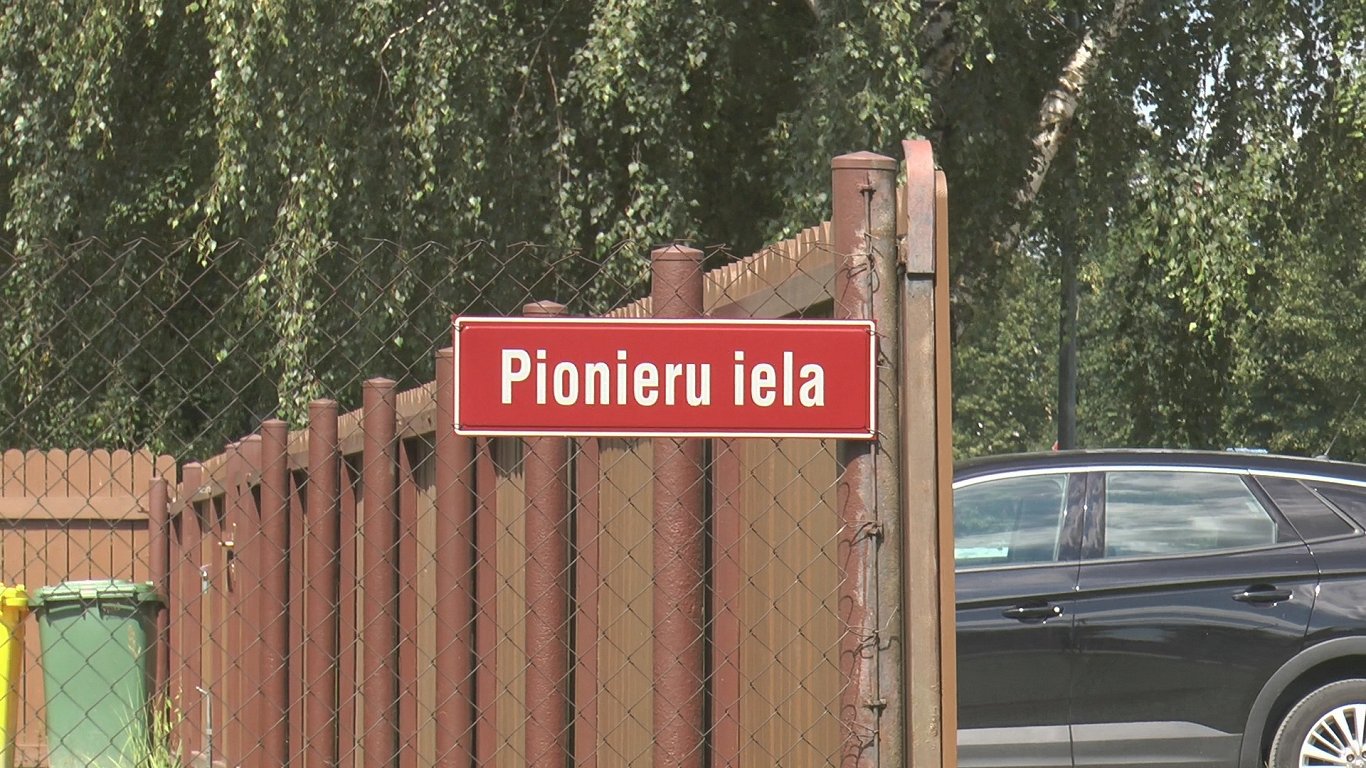Historians of the Public Memory Center association have established a list of these names and have sent it to each municipality.
"There are 93 streets on the list associated with the Soviet regime, then the streets associated with russification are those for which the names were given at the end of the 19th century, like Puškina [Pushkin] Street, etc. We have 48 of them on the list. Something is moving, and we already received replies from some municipalities that they will take our advice and work [..]but then there are questions about who will finance changing the names of the streets," said historian Kārlis Kangeris.
For example, it is recommended that Jēkabpils replace three street names titled in the names of individual revolutionaries of the Communist Party of Latvia. Mayor Raivis Ragainis said that changing street names is both time-consuming and will create costs for residents.
"We do not have any idea that we should not rename these streets, but we need a pragmatic approach – how we will do, what it will cost the population and to what we will then change the names. Then, when the Development Administration gives us the list of these streets, I suppose there will be not only these suggested streets, but we still have, for example, the Varoņu [Hero] Street, which is close to the graves of the heroes of the Soviet Union, then the question is whether or not it should be renamed? There may be a number of such streets, but when and what we will do, I will not yet be able to say," said Ragainis.
Bauska municipality council spokeswoman Laura Ārente said that the local government is considering changing street names. The municipality asked for the opinion of the StateLanguage Centre (VVC) on the change in the name of the Pionieru [Pioneer] Street, but it received an opinion that the names were fully in line with the requirements of place names and the proposal was rejected as unfounded.
Madara Rēķe, head of the State Language Control Department, confirmed that several applications have been received since February for changing street names in Rīga, Bauska and Ogre. In terms of changing the name of the Pionieru Street, the Language Centre explains that there are no appropriate alternatives.
"There must be a primarily weighted justification for changing the street name and changing it to something particular. The VVC will then assess whether the proposed name is in line with the regulatory framework, but it should be said that this is not a clear street name, as it currently meets the requirements [..] because the word “pioneer” has a primary meaning in Latvian for someone who starts something new or pioneering," said Rēķe.
In total, there are 13 Pionieru streets in Latvia. Historian Kangeris said that they are included in the list of place names to be replaced, taking into account the date of the naming of these streets and the context of the political regime of the time. The Public Memory Center intends to send the justification for its recommendations to the Language Center.
Kristīne Kinča, advisor to the municipal union in legal matters, added that changing street names is not currently mandatory by law, as is the case with the dismantling of Soviet monuments, which is currently also a priority for municipalities. On the other hand, changing street names also requires a great deal of public involvement.
"And each of these street names can be viewed in two ways: if the primary name is to glorify the Soviet occupation, it should, of course, be changed, but if it involves significant discoveries in art, culture, science, then I say that this should be overlooked, as well as during the Soviet regime, the achievements made by scientists, architects, or any other person in whose name the street is named, it nevertheless reflects on contemporary culture or even the socio-economic situation. And if a municipality decides that it will not change the street names proposed, then it must be justified to the public," Kinča said.



























